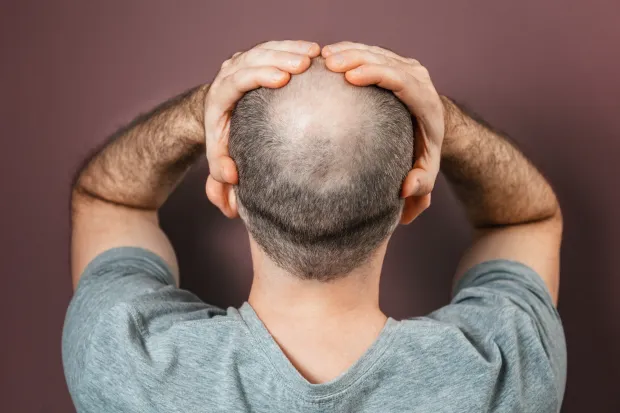If you’ve noticed more hair shedding during winter, you’re not alone. Cold weather and hair loss often go hand in hand, raising concerns for many. In this article, we’ll explain the real link between cold weather and hair fall, debunk myths, and offer practical, expert-approved tips to protect your hair.
You’ll discover whether winter shedding is normal, how to nourish your scalp in colder months, and when to seek medical advice. Backed by expertise and clinical insights, this guide helps you maintain healthy hair even in harsh climates like Islamabad.
Understanding the Link Between Cold Weather and Hair Loss

Is Hair Loss More Common in Winter?
Yes—seasonal hair shedding is a documented phenomenon. Studies show that many people experience increased hair fall in late autumn and winter. This is partly due to natural hair growth cycles shifting in response to environmental changes.
Seasonal Shedding vs. Chronic Hair Loss
Seasonal shedding is temporary and usually resolves on its own. Chronic hair loss, however, could be due to underlying conditions like androgenetic alopecia, stress, or nutrient deficiencies.
- Seasonal shedding: Sudden but temporary thinning, usually around November–January.
- Chronic hair loss: Gradual thinning or balding over time, needing medical attention.
How Cold Air Affects Scalp and Follicles
Dry, cold air strips moisture from your scalp, causing:
- Brittle hair shafts
- Flaky or itchy scalp
- Reduced follicular strength
This hostile environment makes it easier for hair strands to break or fall out prematurely.
Causes of Increased Hair Fall in Winter
Dry Scalp and Reduced Sebum Production
Sebum, your scalp’s natural oil, protects and nourishes hair. In cold weather, your body produces less sebum, leading to:
- Itchiness
- Flaking
- Fragile roots
Vitamin D Deficiency and Sunlight Exposure
Shorter days mean less sun exposure. Low vitamin D levels are linked to telogen effluvium, a condition where hair enters a shedding phase prematurely.
Pro Tip: Have your vitamin D levels checked and consider supplements under medical guidance.
Use of Hot Showers and Heating Tools
While comforting, hot showers and frequent blow-drying can dry out your scalp and weaken your hair. Heat strips away protective oils, leading to more breakage.
Poor Circulation Due to Cold Temperatures
Cold constricts blood vessels in the scalp, reducing nutrient and oxygen delivery to follicles. This can slow growth and contribute to hair thinning.
Common Myths About Cold Weather and Hair Loss
Does Wearing a Hat Cause Baldness?
Myth. Hats do not cause baldness. However, dirty or tight hats can irritate the scalp. Stick to breathable, clean materials.
Can Cold Air Kill Hair Follicles?
Not directly. Hair follicles are resilient, but extreme cold and lack of care can weaken them over time.
Is Hair Loss in Winter Permanent?
Seasonal shedding is typically not permanent. Hair usually regrows by spring if the cause is temporary and managed properly.
How to Protect Your Hair in Cold Weather
Hydration and Scalp Moisturizing Tips
- Use sulfate-free, moisturizing shampoos.
- Apply natural oils (like argan or coconut) weekly.
- Drink plenty of water to maintain internal hydration.
Balanced Diet and Vitamin Support

Key winter hair nutrients:
- Vitamin D – strengthens follicles
- Iron supports healthy growth
- Vitamin B12 – essential for cell production
Hair Care Routine Adjustments for Winter
- Limit shampooing to 2–3 times a week.
- Use leave-in conditioners or hair masks.
- Avoid tight hairstyles that tug on the scalp.
Protective Hairstyles and Hat Tips
- Choose loose, protective styles (braids, buns).
- Wear hats lined with silk or satin to reduce friction.
- Wash hats regularly to avoid bacterial buildup.
When to See a Doctor: Signs of Abnormal Hair Loss
What’s Normal vs. Concerning Seasonal Shedding
Normal:
- Losing 50–100 strands per day
- Increased shedding over 1–2 months in winter
Concerning:
- Bald patches
- Hair coming out in clumps
- No regrowth after 3–4 months
Medical Conditions That Worsen in Winter
- Telogen Effluvium: Triggered by stress or deficiencies
- Seborrheic Dermatitis: Flares up in cold, dry conditions
- Scalp Eczema or Psoriasis: Can increase hair fragility
Expert Recommendations and Treatments
Trichologist Insights on Seasonal Hair Care
According to Dr. Rana Irfan (ABHRS/ISHRS Certified Hair Transplant Surgeon in Islamabad), “Seasonal hair loss is common, but managing scalp health and nutrition can significantly reduce shedding.”
Safe Use of Minoxidil or Supplements in Winter
Minoxidil (topical) may support regrowth but should be used under supervision. Supplements like Biotin or Vitamin D help only if you have deficiencies.
Scalp Treatments and PRP Therapy Options
- PRP (Platelet-Rich Plasma) therapy can boost follicle health.
- Microneedling with serums also promotes regrowth in dormant follicles.

FAQs About Cold Weather and Hair Loss
Can cold weather cause permanent hair loss?
No, most winter-related shedding is temporary and reversible with proper care.
Should I change my shampoo in winter?
Yes, switch to hydrating or anti-dandruff formulas depending on your scalp’s condition.
How can I boost scalp circulation naturally?
Use scalp massage tools
Apply warm oil treatments
Stay active to promote blood flow
Does winter affect beard hair or eyebrows, too?
Mild dryness may occur, but significant shedding in facial hair is rare.
Book a Consultation with a Hair Loss Expert in Islamabad
Worried about your hair thinning this winter? Don’t wait until it worsens. Book a personalized consultation with Dr. Rana Irfan, a renowned ABHRS and ISHRS-certified hair restoration specialist in Islamabad.
- Get a thorough scalp assessment
- Understand the root cause of your hair loss
- Explore safe and proven treatment options, from medical therapies to advanced PRP or transplant techniques
